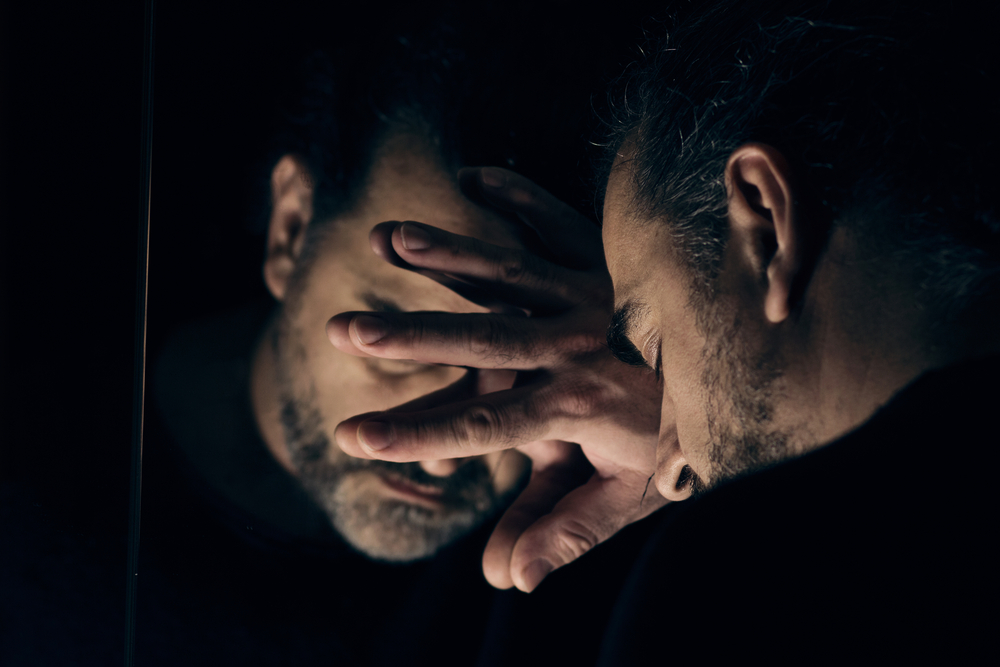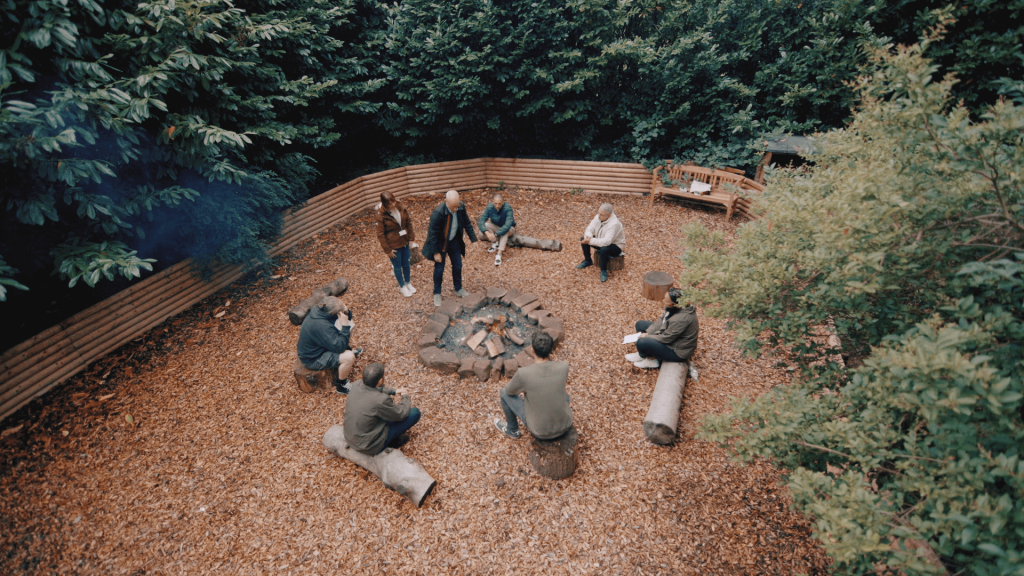What’s included?
- Introduction
- The difference between lapse and relapse
- What to do after relapse
- How to prevent another relapse
- Treatment options for relapse prevention
- How can Delamere help with addiction?
Relapse is common. Between 80-95% of people who have undergone treatment for drug or alcohol addiction relapse within one year (1). This is because chronic recurring brain disorders can’t be cured. Instead, they need to be managed. A person in recovery will need to control their compulsive urges for life. This involves knowing what their triggers are – the places, people and things that fuel their addictive behaviour – and learning how to moderate them. Sadly, sometimes triggering events are too much to bear and they turn back to drink or drugs. So, what should you do if a relapse occurs?
Delamere is a purpose-built residential wellness retreat specialising in alcohol addiction and drug addiction. Their holistic therapists use a variety of different approaches to reduce the likelihood of alcohol and drug relapse following a residential rehab programme. Here, they explain the types of relapses that can occur and what you can do immediately after relapse, and in the future, to prevent a return to destructive behaviour.

Want to find out about treatment options for relapse? Speak to Delamere
The difference between lapse and relapse
First of all, let’s look at types of relapses. When someone leaves rehab treatment, they are equipped with everything they need to navigate a life of abstinence. They should feel confident being around alcohol or drugs knowing that they have a set of strategies in place to avoid relapsing. However, life can throw up stresses or circumstances that make the temptation too strong. An initial transgression is defined as a ‘slip’ or ‘lapse’. This often happens early in recovery.
In contrast, a ‘relapse’ tends to happen much further into the recovery journey. After months or years in successful recovery from drug or alcohol addiction, people can develop a false sense of security. Unexpected events, such as the death of a family member, divorce or job loss, can create a tumultuous environment that leads to addictive behaviours. Some people also swap one addiction for another, which makes them feel like they haven’t really had a relapse. Which makes it harder to accept and access treatment.
The three stages of relapse
Experts agree that relapse is a succession of stages rather than a single event. There are three stages of relapse: emotional, mental and physical (2). Learning more about these stages will help you to recognise if you are entering into dangerous territory and need to ask for professional help.
During the emotional stage you will start to grapple with the difficult emotions that were powering your addiction, such as anxiety and anger. This might mean you stop taking care of yourself and let some aspects of your treatment plan slip. This is followed by a mental relapse, where you begin wrestling with your conscience over whether or not to use again. You might start convincing yourself that one little drink or ‘hit’ won’t harm anyone. Finally, a physical relapse takes place, where you actively seek out ways you can take drugs or drink.
What to do after relapse
Firstly, it’s important to remember that you haven’t failed. It has taken a lot of hard work and commitment to arrive at this point. You have been successful before and you will be again. If you have had a very brief lapse and don’t believe you need to enter addiction treatment again, there are some actions you can take in the first instance.
Take time to think about why the drug or alcohol relapse has happened. What triggered it? Are these the same stressors as before or is it something new? Revisit your original care plan and remind yourself of your coping mechanisms. You will have documented challenging thoughts and feelings throughout the recovery process and can use the tools you learnt to manage them. Decide what you need to get back on track and reach out for support. This might mean confiding in family or friends or contacting your therapist to resume part of your treatment.
How to prevent another relapse
Immediately after a relapse it’s important you regain focus. All good residential rehab programmes include a relapse prevention plan. This involves helping you to adopt healthy habits, teaching you coping skills and using Cognitive Behavioural Therapy (CBT) to retrain your brain out of addictive thoughts and impulses. Remember all the skills you’ve acquired during the recovery process so far and start putting them back into action.
Use distraction techniques to overcome triggers and practise good self-care. Replace unhealthy behaviours with healthy habits – go for a walk, have a bath or read a book. It might also help to contact peers from your time in rehab. While recovery is a very personal journey, they have been through similar challenges and can give you the confidence to commit to your original goals and succeed in relapse prevention.
Treatment options for relapse prevention
Therapy
Therapy is the foundation of every good residential rehab programme. A combination of different therapeutic approaches might be used depending on your individual needs, from Cognitive Behavioural Therapy (CBT) to motivational interviewing techniques. Some treatment centres use contingency management programmes whereby the person in recovery must submit a negative drug or alcohol sample in exchange for rewards. (3)
Medication
During a clinical drug or alcohol detox you will be prescribed various medications to get your body back into balance and to reduce many of the unpleasant withdrawal symptoms. Some of the drugs may also be provided to support you in recovery and prevent relapse. For instance, Naltrexone is frequently given to prevent alcohol relapse as it helps to reduce cravings. While methadone may be recommended for people recovering from heroin addiction.
Peer support
Visiting support groups can be helpful in relapse prevention as it adds another level of accountability. Community Reinforcement and Family Training (CRAFT) is another method of helping people stay on track which calls on family and friends to get involved in the recovery process and encourage the person to remain abstinent (3). Delamere wellness retreat actively encourages people who have completed rehabilitation programmes to maintain contact with their peers for support in the year following treatment to help prevent alcohol and drug relapse.
How can Delamere help with relapse?
If you’ve experienced a drug or alcohol relapse or are worried that your recovery is in jeopardy, we can help you to reset the clock. Delamere is a luxury purpose-built wellness retreat on a unique six-acre site in tranquil forest surroundings. It is the ideal base to regroup, recharge and refocus on your recovery.

Our holistic therapists have a person-centred approach. They take your individual needs into account and will develop a programme that perfectly suits your needs. We use a combination of one-to-one counselling, group therapy work, and evidence-based somatic healing techniques to help you make sense of the reasons for your alcohol or drug relapse.
We believe in creating ‘future-proof’ recovery plans. The tools you learn during our care are designed to help you for life. You will have 12 months of specialist aftercare which includes access to your personal therapist to keep you focused and a network of peers who can support you on your journey. Together, we will help you remain in active recovery and avoid another relapse.
If you are concerned about drug or alcohol relapse, call us confidentially to speak to a member of the team today. Contact Delamere
References
1. Menon J, Kandasamy A. Relapse prevention. Indian J Psychiatry. 2018 Feb;60(Suppl 4):S473-S478. doi: 10.4103/psychiatry.IndianJPsychiatry_36_18. PMID: 29540916; PMCID: PMC5844157.
2. Melemis SM. Relapse Prevention and the Five Rules of Recovery. Yale J Biol Med. 2015 Sep 3;88(3):325-32. PMID: 26339217; PMCID: PMC4553654.
3. Guenzel N, McChargue D. Addiction Relapse Prevention. [Updated 2022 May 8]. In: StatPearls [Internet]. Treasure Island (FL): StatPearls Publishing; 2022 Jan-. Available here.






